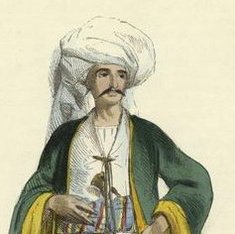Featured Quizzes
User Quizzes
Create Quiz
Data and Charts
Badges and Games
About JetPunk
JetPunk Shop
Dark Mode

Demonyms Quiz
A demonym is a term that refers to a person from a specific place. For example, a person from Mexico is a Mexican. Can you guess these other demonyms?
Rate:
Featured Quiz
Last updated: August 28, 2018
You have not attempted this quiz yet.
More quiz info >>
| First submitted | June 27, 2011 |
| Times taken | 153,848 |
| Average score | 57.6% |
| Rating | 4.07 |
5:00
Enter name for people here:
0
/ 33 guessed
Time Used
00:00
Best Time
00:00
The quiz is paused. You have remaining.
Scoring
You scored / = %
This beats or equals
% of test takers
also scored 100%
The average score is
Your high score is
Your fastest time is
Keep scrolling down for answers and more stats ...
|
|
|
New and Popular
Save Your Progress
Copyright H Brothers Inc, 2008–2024
Contact Us | Go To Top | View Mobile Site

Phoenicians came from Phoenicia (unless you are referring to the town in Arizona?)
I was super confused why my (misspelled) answer wasn't being accepted and couldn't figure out where the misspelling was (particularly since the letter "i" is pronounced with an "eeee" sound in Italian).
And then, I was once told by a Filipina that if I (a Finn) went to Philippines, they would most certainly call me there "Americano".
Maybe you weren't denying that, maybe you were just suggesting "from the Americas" for clarity
QuizWol, cut & paste from Wikipedia for your convenience: English use of the term American for people of European descent dates to the 17th century, with the earliest recorded appearance being in Thomas Gage's The English-American: A New Survey of the West Indies in 1648. In English, American came to be applied especially to people in British America and thus its use as a demonym for the United States derives by extension.
2019 - 1648 = 371 years, or nearly 4 centuries.
Technically Canadians are also American but are too nice and/or fed up to care any more about making that clear. They gave up. Hasn't done them any harm really.
Moskovite
Moscowite
Moscavite
Moscuvite
Moscovian
Moscauvite
Same reason it doesn't take Veneziano or Peruano or Polski or Schweizerisch (Suisse? Svizzero? Helvetii?). All of those are correct demonyms for this quiz, but being on the English part of the site, they're kind of looking for answers in English unless otherwise specified.
Although actually, I guess Napolitano is like Galician/Spanish for Neapolitan so it's more like why it doesn't take Venezianisch or Perufo kasa or Huitene or Liverpoolczycy.
They take great offense when that one is messed up!